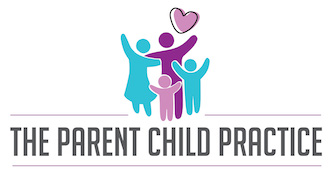In my work as a psychologist and school psychologist, I have observed the confusion parents experience about how to prepare for college when they have a child with a documented disability. In fact, many parents and students are often surprised to learn that their children are no longer eligible for services in college under the Individuals with Disabilities Education Act. However, students are protected from discrimination under the Office of Civil Rights (OCR) Section 504 of the Rehabilitation Act of 1973 and Title II of the Americans with Disabilities Act of 1990, which prohibits a person from being discriminated on the basis of a disability.
For a student that had an Individualized Education Plan (IEP) or a 504 plan in high school, it will not travel with them to college and there will not be a team meeting like both the student and parent(s) were accustomed to in secondary school. The process for obtaining disability services in college is different from high school. Colleges differ in their requirements of documentation for disability services and it is expected that your child, the college student, will contact the office of student disability services about the supports that are available and offered at their college campus. If your child is still in high school, I recommend that you allow your child to attend IEP or 504 plan meetings and encourage them to advocate for their services in high school so that they will be comfortable advocating for assistance in college.
Be assured that accommodations can still be received in college though. Colleges have to provide accommodations for students that qualify for disability services under Section 504; however, you will not hear a college use the words “504 plan” to describe a student’s services in college.
A college will also not just take a student’s IEP or 504 plan from high school and then replicate those same services in college. Colleges offer different types of supports and accommodations that are relevant to a college campus. Additionally, a college is not required to "modify" the academic content or requirements because of a student disability; however, they can "accommodate" or make "academic adjustments" to meet the needs of a student with a disability. For example, a college may provide extended time for an examination; however, they are not required to change the content of the test. This differs from primary and secondary education, where the school may modify examinations or class content because of a student’s IEP requirements. Additionally, colleges are not required to provide personal aides, readers (i.e., read aloud services) for students in classrooms, or provide (i.e., pay for/purchase) students with the technology devices for typing.
When seeking services in college, students must provide documentation that they have a disability and need college disability services. The documentation requirements slightly differ from college to college and some require more documentation than others. When I am working with parents, I recommend that they look at the various schools their young adult is applying to and find out the requirements for disability services at each of those schools.
Often the requirements may include: a diagnosis of the student’s disability, along with supporting documentation about the date of the diagnosis, information about how the diagnosis was determined, the background/training of the professional that made the diagnosis, and information about how the diagnosis impacts their major life activities and academic performance. If applicable, the school will require the IEP or 504 plan that the student had in secondary school; however, typically this documentation without any psychoeducational testing or another type of relevant evaluation is not sufficient.
If the psychoeducational evaluation is outdated (approximately three years old), the student will need an updated psychoeducational evaluation so that the disability can be confirmed as accurate and a determination can be made about what types of college accommodations may be beneficial. The testing can also help determine strengths and weaknesses for academic subjects and help with any other appropriate referrals that may be available at the college institution (i.e., counseling, career, etc).
Parents often ask me, “Who pays for this evaluation?” The college is not required to pay for or conduct a new evaluation to document a disability for college accommodations and services. Therefore, parents or the student will likely have to pay for or find funding for a psychoeducational evaluation.
In my office, a psychoeducational assessment will provide updated information about cognitive functioning (intelligence); academic functioning; and possible language abilities, fine motor abilities or processing abilities, if that is also a concern. It may also include an updated assessment of attention if this has been an issue in the past. I will provide recommendations that will assist the student in seeking appropriate support in college to ensure college academic success. Please note that a psychoeducational assessment and documentation of a disability is not a guarantee that a student will receive college accommodations because that determination is made by the college disability office. However, the psychoeducational evaluation is necessary to pursue the possibility of services for a student with a disability or suspected disability.
I have included relevant links about college disability services below and I am also available for a free 15-minute consultation to answer any questions or schedule an appointment for a psychoeducational assessment.
Website Resources
FAQs About Section 504 and Post Secondary Education
http://www.pacer.org/publications/adaqa/504.asp
Section 504 Subpart E: Postsecondary Education
http://www2.ed.gov/policy/rights/reg/ocr/edlite-34cfr104.html#E
“College Students and Disability Law” by Stephen Thomas. Comprehensive article about Section 504, ADA, qualifying as a ‘person with a disability’, admission, accommodations, and dismissal.
http://www.ldonline.org/article/6082
College Planning for Students with Learning Disabilities
http://www.ldonline.org/article/6130
College: Continuing and Higher Education for Students with Disabilities – Wrightslaw http://www.wrightslaw.com/info/college.index.htm



